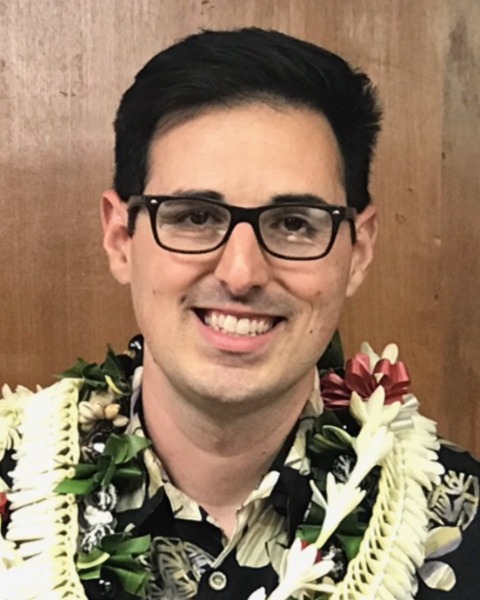Category: Eating Disorders
Symposium 88 - Translating Treatments for Anxiety to Eating Disorders
Level of Familiarity: Moderate
Recommended Readings: Butler, R. M., & Heimberg, R. G. (2020). Exposure therapy for eating disorders: A systematic review. Clinical Psychology Review, 78, 101851., Koskina, A., Campbell, I. C., & Schmidt, U. (2013). Exposure therapy in eating disorders revisited. Neuroscience & Biobehavioral Reviews, 37(2), 193-208., Schaumberg, K., Reilly, E. E., Gorrell, S., Levinson, C. A., Farrell, N. R., Brown, T. A., ... & Anderson, L. M. (2021). Conceptualizing eating disorder psychopathology using an anxiety disorders framework: Evidence and implications for exposure-based clinical research. Clinical psychology review, 83, 101952., ,
-

Rachel Butler, Ph.D. (she/her/hers)
University of Louisville
Louisville, Kentucky -

Cheri Levinson, Ph.D.
Associate Professor
University of Louisville
Louisville, Kentucky -

Jamal Essayli, Ph.D. (he/him/his)
Penn State College of Medicine
Hershey, Pennsylvania -
KS
Katherine Schaumberg, Ph.D. (she/her/hers)
Assistant Professor
University of Wisconsin-Madison
Madison, Wisconsin -
TP
Taylor Perry, M.A. (she/her/hers)
Graduate Student
SUNY Albany
Albany, New York -
HF
Hannah Fitterman-Harris, Ph.D. (she/her/hers)
University of Louisville
Louisville, Kentucky -

Rachel Butler, Ph.D. (she/her/hers)
University of Louisville
Louisville, Kentucky
Chair(s)
Discussant(s)
Presenter(s)
Research suggests that eating disorders (EDs) are maintained by anxiety-based processes (Schaumberg et al., 2021). In particular, EDs are driven by fears (e.g., fear weight gain) and associated feared consequences (e.g., fear of rejection, abandonment, losing control; Brown & Levinson, 2022; Butler et al., 2023). In an anxiety-based conceptualization, these fears lead to avoidance behaviors such as restriction, purging, excessive exercise, calorie counting, or body checking, which serve to reduce distress and the likelihood of the feared outcome occurring (Schaumberg et al., 2021). Given this framework, translating interventions typically used in the treatment of anxiety disorders to EDs may be an effective method of improving treatment outcomes for those with EDs (Butler & Heimberg, 2020). The current symposium will deliver information about prevention programs, interventions, and implementation-focused efforts which seek to translate and facilitate exposure-based methods for use with EDs.
Research is needed to understand whether exposure therapy can be incorporated into ED prevention programs to improve outcomes. Katherine Schaumberg will present results from a high-risk prevention and relapse prevention program called the Body Advocacy Movement. The program is a peer-led, group-based prevention program designed for high risk samples which targets fear of weight gain and anti-fat bias through exposure and dissonance-based activities.
Interoceptive exposure has been suggested as an intervention to address intolerance of physical sensations (e.g., bloating, fullness) in EDs. Taylor Perry will present research on ED specific interoceptive exposures compared to traditional interoceptive exposures with participants with high body dissatisfaction. Traditional interoceptive exposures may be as effective as ED specific exposures at decreasing ED psychopathology.
Hannah Fitterman Harris will be presenting results from an open trial of an online exposure-based self-guided intervention with modules addressing fear of weight gain, fear of food, physical sensations, and social eating fears. This program was directly adapted from an online self-guided intervention designed for the treatment of anxiety disorders.
Little research exists on patients with EDs’ attitudes regarding exposure therapy. To address this, Jamal Essayli will be presenting research on ED patients’ attitudes about receiving exposure therapy, open weighing, and other cognitive behavioral interventions in a telehealth versus in-person format.
Finally, despite evidence suggesting that exposure therapy is effective in the treatment of EDs, few clinicians implement exposure in practice. Exposurepedia is a web-tool designed to reduce the burden of creativity and innovation in using exposure therapy with clients with anxiety disorders. Rachel Butler will present findings from a trial adapting this web-tool for use with EDs, including clinician perceptions of the tool and whether use of the tool increased frequency of exposure use.
Cheri Levinson will synthesize the presentations as well as discuss the implications of the research on design and implementation of exposure based treatments for EDs.
Learning Objectives:
- Explain the rationale for the translation of treatments for anxiety disorder to eating disorders.
- Explain evidence in support of the use of exposure-based interventions for eating disorders.
- Describe current efforts to improve implementation of exposure therapy for eating disorders.
- Describe feasibility of adapting interventions developed for anxiety disorders to be used with eating disorders.
- Discuss the efficacy of specific exposure-based interventions for the prevention of eating disorders.

